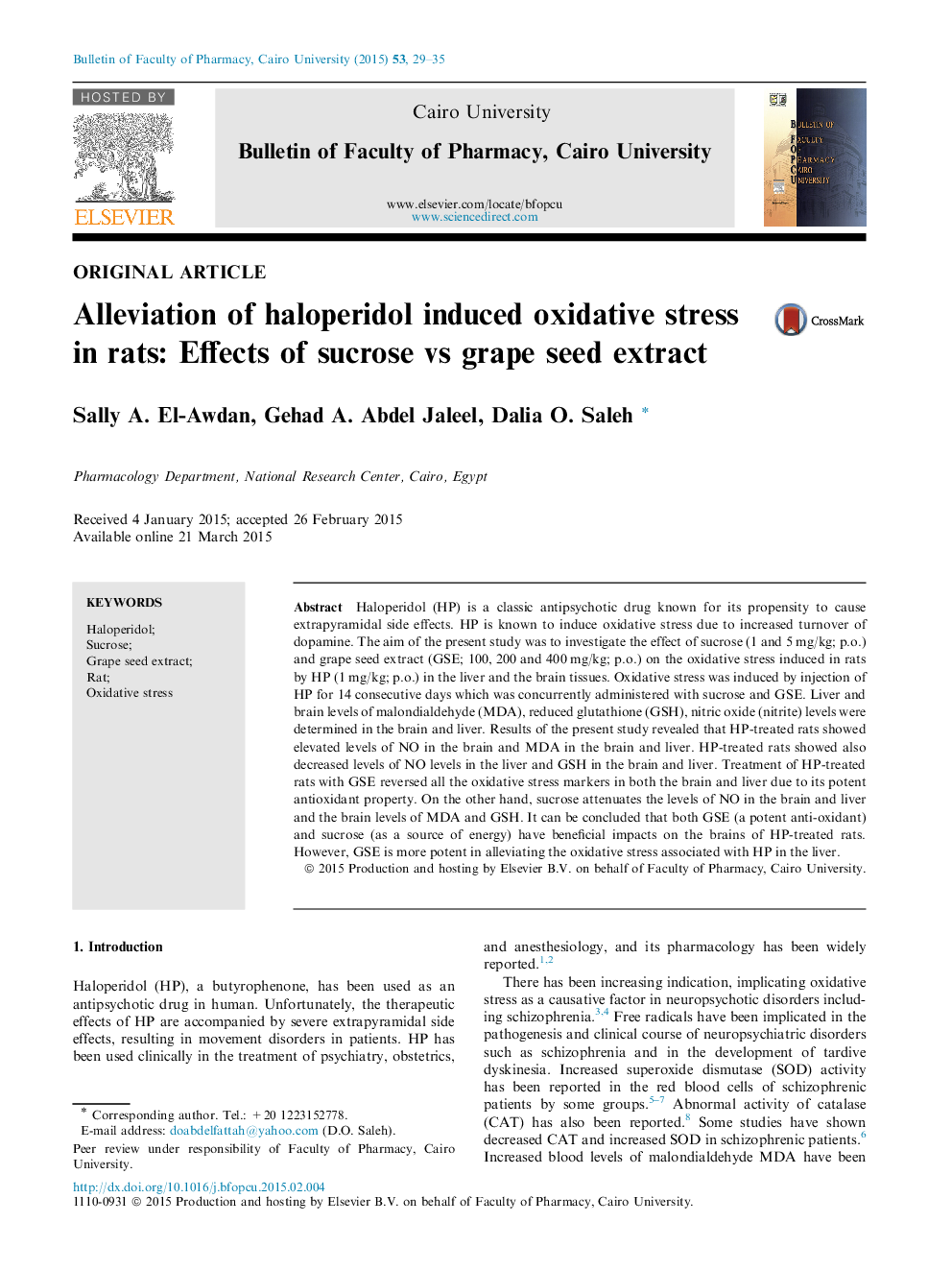| Article ID | Journal | Published Year | Pages | File Type |
|---|---|---|---|---|
| 2478646 | Bulletin of Faculty of Pharmacy, Cairo University | 2015 | 7 Pages |
Haloperidol (HP) is a classic antipsychotic drug known for its propensity to cause extrapyramidal side effects. HP is known to induce oxidative stress due to increased turnover of dopamine. The aim of the present study was to investigate the effect of sucrose (1 and 5 mg/kg; p.o.) and grape seed extract (GSE; 100, 200 and 400 mg/kg; p.o.) on the oxidative stress induced in rats by HP (1 mg/kg; p.o.) in the liver and the brain tissues. Oxidative stress was induced by injection of HP for 14 consecutive days which was concurrently administered with sucrose and GSE. Liver and brain levels of malondialdehyde (MDA), reduced glutathione (GSH), nitric oxide (nitrite) levels were determined in the brain and liver. Results of the present study revealed that HP-treated rats showed elevated levels of NO in the brain and MDA in the brain and liver. HP-treated rats showed also decreased levels of NO levels in the liver and GSH in the brain and liver. Treatment of HP-treated rats with GSE reversed all the oxidative stress markers in both the brain and liver due to its potent antioxidant property. On the other hand, sucrose attenuates the levels of NO in the brain and liver and the brain levels of MDA and GSH. It can be concluded that both GSE (a potent anti-oxidant) and sucrose (as a source of energy) have beneficial impacts on the brains of HP-treated rats. However, GSE is more potent in alleviating the oxidative stress associated with HP in the liver.
